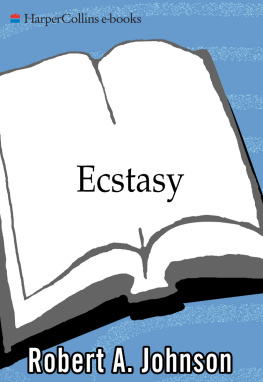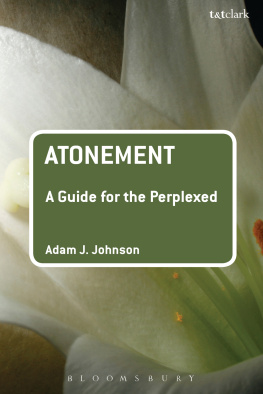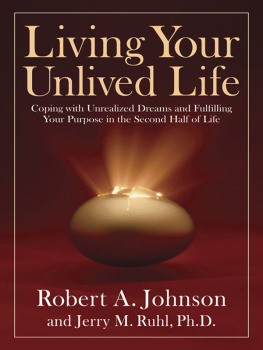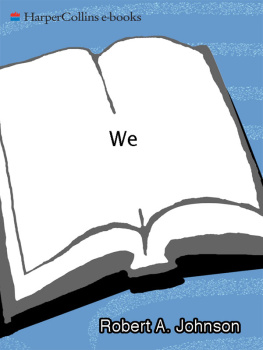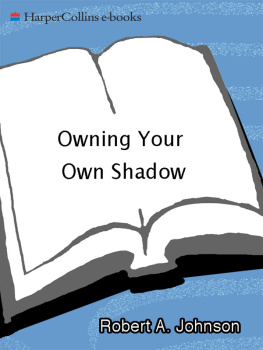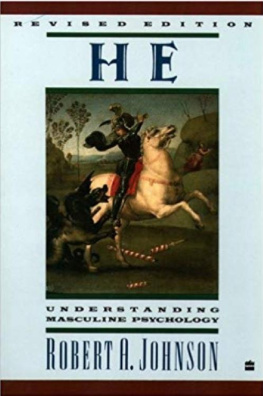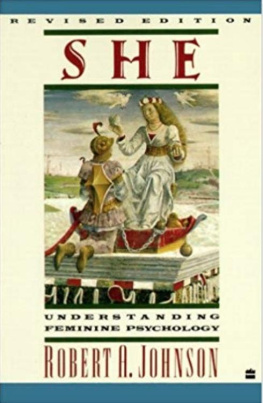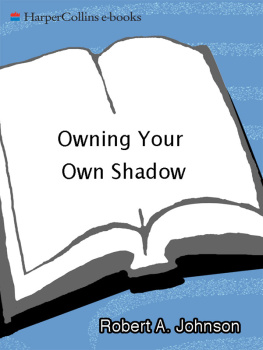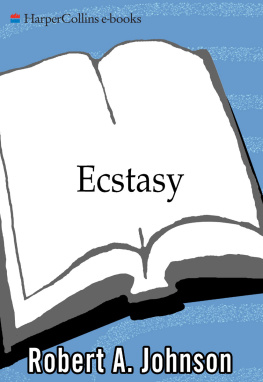Johnson - Ecstasy: understanding the psychology of joy
Here you can read online Johnson - Ecstasy: understanding the psychology of joy full text of the book (entire story) in english for free. Download pdf and epub, get meaning, cover and reviews about this ebook. City: New York, year: 2009, publisher: HarperCollins e-Books, genre: Religion. Description of the work, (preface) as well as reviews are available. Best literature library LitArk.com created for fans of good reading and offers a wide selection of genres:
Romance novel
Science fiction
Adventure
Detective
Science
History
Home and family
Prose
Art
Politics
Computer
Non-fiction
Religion
Business
Children
Humor
Choose a favorite category and find really read worthwhile books. Enjoy immersion in the world of imagination, feel the emotions of the characters or learn something new for yourself, make an fascinating discovery.
Ecstasy: understanding the psychology of joy: summary, description and annotation
We offer to read an annotation, description, summary or preface (depends on what the author of the book "Ecstasy: understanding the psychology of joy" wrote himself). If you haven't found the necessary information about the book — write in the comments, we will try to find it.
Ecstasy: understanding the psychology of joy — read online for free the complete book (whole text) full work
Below is the text of the book, divided by pages. System saving the place of the last page read, allows you to conveniently read the book "Ecstasy: understanding the psychology of joy" online for free, without having to search again every time where you left off. Put a bookmark, and you can go to the page where you finished reading at any time.
Font size:
Interval:
Bookmark:
Understanding the Psychology of Joy

To Beatrice Burch
In whose desert house this book took shape
Ecstasy: Understanding the Psychology of Joy
The Myth of Dionysus
What Is Ecstasy?
The Rise and Fall of Dionysus
The Other Side of Ecstasy
Celebration of Ecstasy
Women and Dionysus: Celebration of Life
Androgyny: The Union of Male and Female
The Return of the Scapegoat
Filled with Light or Filled with Air?
The God Connection
Touching Ecstasy
Active Imagination: Meeting the Archetype
Dreamwork: Working with the Archetype
Ritual and Ceremony: Bringing Joy Home
The multiplicity of the gods correspondeth to the multiplicity of man.
C. G. JUNG
Ecstasy. It was once considered a favor of the gods, a divine gift that could lift mortals out of ordinary reality and into a higher world. The transformative fire of ecstasy would burn away the barriers between ourselves and our souls, bestowing on us a greater understanding of our relation to ourselves and to the universe.
It is the great tragedy of contemporary Western society that we have virtually lost the ability to experience the transformative power of ecstasy and joy. This loss affects every aspect of our lives. We seek ecstasy everywhere, and for a moment we may think we have found it. But, on a very deep level, we remain unfulfilled.
Our materialistic society teaches us that the only reality is the one we can hold onto, the only thing of value what we can take to the bank. Our spirits need nourishment as much as ever. But, having excluded the inner experience of divine ecstasy from our lives, we can look only for its physical equivalent. And no matter how hard we look, or how many low-grade ecstatic experiences we accumulate, we crave more.
This craving has led to the most characteristic symptom of our time: addictive behavior. So many of our lives are touched by addictionif not our own, then that of a relative, a friend, a celebrity. Do you recognize any of these? The successful young entrepreneurs who think they need cocaine to give them the competitive edge; the supermoms who cant get through the day without a tranquilizer; the harried managers who need two or three drinks every night after work to unwind; the young children who try street drugs because they are already touched by our societys bankruptcy of feeling; the college students who go to parties solely to get drunk or stoned; the dangerously fast drivers who are addicted to the thrill of speed; the insider traders who make illegal deals on the stock market because they are addicted to the kick of making money; the perpetual singles who go from lover to lover, addicted to the first glow of romantic love.
Addiction is the negative side of spiritual seeking. We are looking for an exultation of the spirit; but instead of fulfillment we get a short-lived physical thrill that can never satisfy the chronic, gnawing emptiness with which we are beset.
To fill this emptiness, we need to reconnect with the capacity for ecstasy that lies dormant within us. Our first step must be to try to understand the nature of ecstasy.
One can often use myth to elucidate psychological processes, as I have done elsewhere. For example, my book entitled He explored masculine psychology through the legend of Parsifal and the Grail; We explored romantic love through the story of Tristan and Iseult. This book explores the nature of ecstasy through the myth of Dionysus.
In ancient Greece Dionysus was the god of wine and ecstasy. The myth of Dionysus, and the rise and fall of his cult, offer perhaps the best elucidation of our loss of the ecstatic experience.
Part I of this book explores the meaning of the Dionysian archetype of ecstasy and what its loss has meant for us. Part II suggests avenues we can explore to reclaim and express the true joy that is ours by birthright.
Archetypes: Blueprints of Human Behavior
The world of the ancient Greeks was formed and determined by their gods. In the larger-than-life actions of the gods and goddesses they saw the dramas of daily life. Today the gods of Olympus seem to have little relevance. Our world is on a more human scale, molded by psychological forces. For us, Olympus is simply a mountain.
But the fact that we no longer have the Olympic realm in which to seek the gods does not mean that the gods have ceased to exist. The forces they represent express themselves in the way that is most understandable to us: psychologically, as modes of behavior.
It is as psychologist Carl Jung once said: We do not believe in the reality of Olympus, so the ancient Greek gods live on for us today as symptoms. We no longer have the thunderbolts of Zeus, we have headaches. We no longer have the arrows of Eros, we have angina pains. We no longer have the divine ecstasy of Dionysus, we have addictive behavior. Even though we no longer recognize the gods, we experience their powerful forces.
Jung called the forces behind these symptoms archetypes literally, first patternsblueprints of the basic human drives and qualities that we all share. We tend to think of ourselves as unique individuals, and to a great extent we are. But we also contain within our deepest selves a plurality of these drives and behaviors, which we express in our own ways.
We see the expression of archetypes every day. For example, we may say that a particular woman is a real earth mother because she is nurturing, caring, and down to earth. Or we may say that an overly macho, aggressive man thinks hes Rambo. These archetypes work well for us as descriptions of behavior. We understand immediately what they mean.
Jung considered the Greek gods to be perfect archetypes because their images were distinct and predictable. They never went against type. For example, Zeus, the chief god of Olympus, was forever falling in love. His wife, Hera, the goddess of marriage, was always jealous, always vengeful, always spiteful. It would be completely out of character for her to forgive Zeus or one of his lovers. Instead Hera always plans, plots, and executes heartless revenge. She is the archetype of the jealous wife.
The basic forms and patterns of human behavior do not change, they merely put on the clothes and mores of a particular time and place. For example, in the West we often express the psychological archetypes through our movie idolsMarilyn Monroe as the goddess of love, Venus or Aphrodite; John Wayne as the god of war, Aries or Mars. We can try to repress these archetypes, to drive them underground; but sooner or later they will reemerge. They may come back in an unfamiliar form, but they will be driven by the same archetypal energy.
Myth and the Collective Unconscious
Many modern people equate myth and untruth. As one man I know put it, Myths and legends are the same thing, arent they? Except that legends have a grain of truththere really was a Johnny Appleseedand myths are completely untrue. A great many people in our society agree with this thinking. For them, myths are stories that belong to dead cultures, primitive peoples, or children, and have no bearing on modern adult lives. They are sadly mistaken.
In fact, as we shall see, myths have everything to do with our lives because myths are populated by archetypes. When we read myth as Jung did, we can see clearly how our basic human drives interact. Myth then becomes a rich source of insight into our psychological motivations.
For many people myths have the quality of dreams. Both are filled with fantastic events and images, and both communicate deep psychological truths. Dreams use symbols to send messages from the unconscious self to the conscious self. In the same way a myth is a message from a deeper layer of our psyche, which we share with our whole culture. This Jung called the collective unconscious . When we understand a dream we contact a hidden portion of ourselves. When we contact the inner meaning of a myth we touch all humanity, because each of us shares in the rich images of the collective unconscious.
Font size:
Interval:
Bookmark:
Similar books «Ecstasy: understanding the psychology of joy»
Look at similar books to Ecstasy: understanding the psychology of joy. We have selected literature similar in name and meaning in the hope of providing readers with more options to find new, interesting, not yet read works.
Discussion, reviews of the book Ecstasy: understanding the psychology of joy and just readers' own opinions. Leave your comments, write what you think about the work, its meaning or the main characters. Specify what exactly you liked and what you didn't like, and why you think so.

